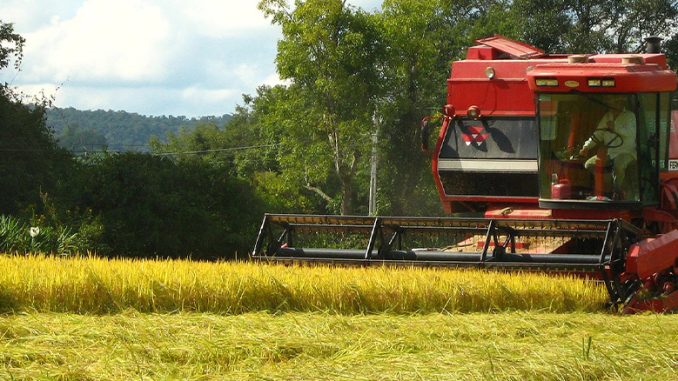
Brazil is increasingly becoming one of Southeast Asia’s major partners in foreign trade. According to official figures for the first semester of 2021, Brazilian exports to Singapore now surpass those to Germany. Malaysia is more important as a destination of Brazilian exports than Italy. Thailand has currently become more relevant to Brazil’s exports than France. By the same token, Vietnam outnumbers Switzerland as a Brazilian commercial partner. Indonesia imports more from Brazil than Portugal, the country that colonized South America some centuries ago. That is revealing about the emerging settings of the world we live in. Interconnectedness has reached a new threshold in contemporary times, and the prospects for greater integration between two regions as geographically distant as South America and Southeast Asia are well ahead of us, even against the backdrop of a disturbing and lethal pandemic. This is why the Brazilian crisis matters – and must be monitored by Southeast Asian countries.

What Happened to Brazil?
In the first decade of the century, Brazil struck as a promising country, the power-to-be. In the second decade of the century, it might have lost its way, and now is being treated as a pariah state. Today, many people see Brazil as the “sanitary Fukushima,” an expression coined to describe the situation of South America’s giant nation during the pandemic. So, what happened to the country in the time span of only two decades?
Brazil has been in different places over the years. Indeed, there was a strong belief that Brazil could become the next major power. Some fifteen years back, there was hope in my country. People felt that “this time it would be different,” so Brazil would move upwards, and finally climb the ladder of international relations. On the cover of The Economist magazine, a token for the so-called “international community,” one could clearly see, in the year 2009, a positive reference to Brazil. Christ the Redeemer, Brazil’s national landmark, was depicted as a rocket being launched, which represented, in the eyes of the world, the country’s inevitable fate. Yes, Brazil was believed to be en route to prosperity. But then, in the following decade, assessments had changed. A second cover of The Economist, this time dating from the year 2013, shows the very same Christ, but not in the same way. Apparently, around the year 2013, things got out of control, and Brazil ceased to be a reservoir of hope, as it started showing mild symptoms of an underlying disease. Then, in the year 2016, taken another The Economist cover as a reference, there was, clearly, a perception that Brazil was out of track – and this situation remains the same, if not a bit worse, in 2021.
Figure 1 – Three covers of The Economist
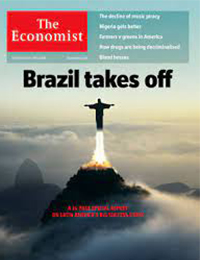 |
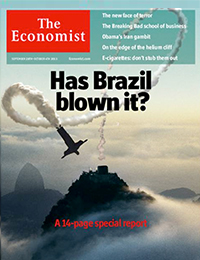 |
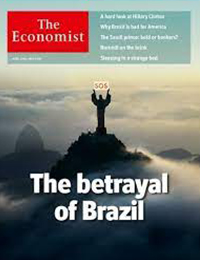 |
Redemocratisation and Regional Consolidation
The so-called third wave of re-democratization firstly took place in Europe around the 1970s – reaching Turkey, Greece, Spain, and Portugal – but soon contaminated Brazil and the rest of Latin America. Peru’s dictatorship was the first to fall down in 1978, then, like a domino effect, many other Latin American countries underwent re-democratization. This is an important landmark to understand how things developed in Brazil. In 1985, after 21 years of a brutal military dictatorship, Brazil again had, as a president, a civilian whose name was José Sarney. In the year 1988, Brazil passed a new Federal Constitution, which meant, from that moment on, that normative contents related to the military dictatorship were mostly left behind, as there was a new legal democratic framework in the country. In 1992, Brazil witnessed one presidential impeachment process, as President Collor de Mello was ousted through constitutional means. Despite all the turbulence, there was no rupture at all. In hindsight, one can contend, this was a successful stress test, as Brazilian institutions survived it. From the year 1993 until 2013 – so for 20 years in a row – the country experienced a positive transformation, having enjoyed its golden years under a democratic regime. Major macroeconomic problems were tackled under Franco and Cardoso, and during the first decade of this century, Lula da Silva managed to mitigate the problem of social inequality.
‘Global Brazil’ was launched around the year 2000, when the country resuscitated a regional integration project. It is fair to say that Brazil has always turned its back on South America, as it felt like belonging to Europe, and connecting with the U.S. rather than cultivating regional ties. This statement is probably valid to explain most of Brazil’s 200 years as an independent nation. There is a reason for this: Brazil has been colonized by Portugal, back in the early 1500s, and these dependency ties were maintained for centuries. In the beginning of the current century, though, Brazil attempted to become an autonomous player and to associate with its peers from the Global South. This is an important turning point. Note that Brazil has even joined and, actually, been one of the founders of the BRICs, an acronym for Brazil, Russia, India, and China. Within this context, Brazil assumed an identity of being a Global South powerhouse. The country liked to entertain the idea that the world belonged to Global Southerners, and the BRICS grouping was the embodiment of this project. It worked as if Brazil had a tacit, implicit mandate to represent South America, maybe Latin America, in world affairs.

Brazil, thus, was being seen as a regional hegemon. Brasilia started spearheading integration initiatives like Unasur, and doubled down on Mercosur. As a matter of fact, Unasur – the Union of South American Nations, founded in 2008 – would be an emulation of the European Union in the tropics. Whereas it aimed to become a political union, one cannot reach overnight the level of maturity that the EU, as well as other regional integration projects, enjoyed after decades. For Brazil, taking the lead of South America’s was an ingredient for the country’s global projection. One can also recall that, in the first decade of this century, Brazil was chosen to host global events, like the Summer Olympics in 2016, or FIFA Football World Cup in 2014 – which was a proxy indicator for Brazil’s gaining traction in world affairs. Signs were indicating that Brazil could be the major power of tomorrow, and their people definitely bought the narrative. In 2011, Brazil became the sixth major economy in the world, a true milestone, so there was room for a lot of optimism. Apparently, though, we all were somewhat mistaken, as Brazil has faced multiple crises since 2013 – what I ‘Brazil’s quadruple crisis.’
Brazil’s Quadruple Crisis
The first one is economic in nature. Since 2014, the Brazilian economy has stagnated. If you take Brazil’s GDP as of 2021, you will just find out that the Brazilian economy has the same size as in the year 2008, which means impoverishment. We simply did not grow our economy and our participation in international trade and investments got worse year after year. It is becoming harder for Brazil to place itself as a competitive player in world economic relations, and the prospects are not the most encouraging at this moment. To make things look worse, unemployment rate has soared since 2014. The country needs to catch up with the leading economies of the world, but many issues still remain to be solved.
Figure 2 – Brazil’s GDP in current prices from 1986 to 2026* (estimate)
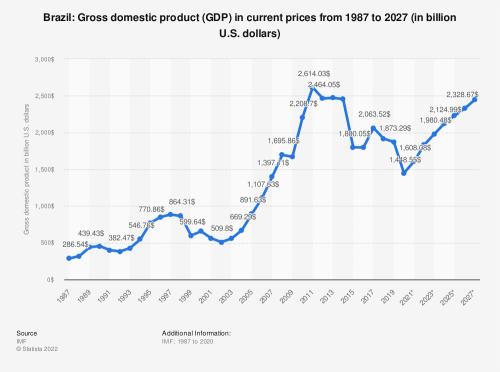
Figure 3 – Brazil’s real GDP percentage growth from 2004 to 2018
Figure 4 – Brazil’s unemployment rate from 1999 to 2020
There is also the politico-institutional crisis, which is affecting each one of us. Brazil has become a country hard to rule. Governance has become something unattainable at the end of the day. The country has held elections for the presidency in 2014 and results were promptly questioned by Aécio Neves, Rousseff’s challenger. Then, in the year 2016, another impeachment process took place, culminating with the ouster of President Dilma Rousseff, barely one year she got reelected. In the year 2018, Brazilians voted massively for Mr. Jair Bolsonaro, who is politically, as well as intellectually, an ill-equipped person to run the country. We’re just watching the news today and confirming the expectations that Brazilian commentators had at the time he won: Bolsonaro is simply not fit for the job. Power branches – the Executive, the Legislative and the Judiciary – keep fighting each other and competing for space, but they never find a common denominator. Brazil is a federation made up of more than 5,500 municipalities, 27 federal states, plus the Union. By force of Brazil’s 1988 Federal Constitution, the Brazilian federal pact comprises more than 5,500 federal entities, and each one of them has some leverage and administrative autonomy. Honestly, though, there is no way to efficiently coordinate this whole machinery. Especially in a situation where the central administration, the leader of the country, the president of Brazil, the chief of government and state all at once, refuses to play any leadership. Things will inevitably get chaotic.
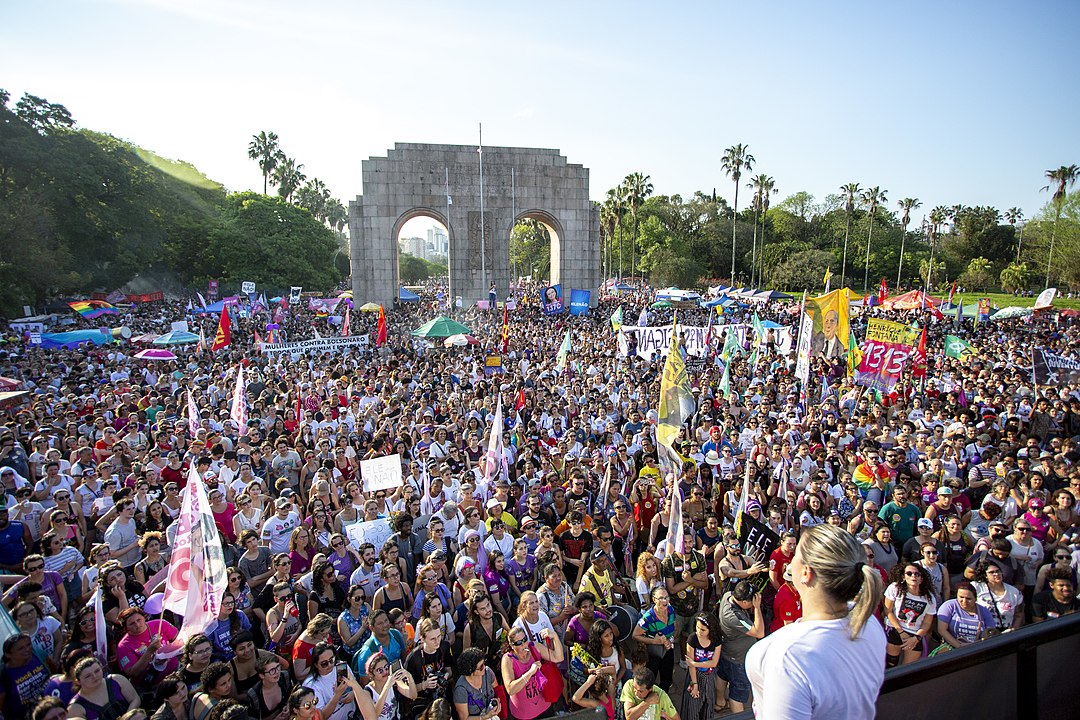
Thirdly, there is an ongoing diplomatic crisis. From 2013 until now, Brazil has had seven foreign ministers – literally, one per annum. There is no sense of continuity, as we keep changing the ones in charge of Brazil’s diplomacy and foreign affairs. We have been failing to catch up with the most pressing agendas and being left out of many important decisions, particularly with regard to the COVID-19 pandemic. The country used to be a global reference when it comes to environmental affairs, for obvious reasons: Brazil is a huge reservoir of biodiversity; Brazil also has potentials in terms of hydroelectricity and clean energy; Brazil is the barn of the world, given the amount of food produced in here. Not to mention hydric resources at large. So, the country should be heard, and have a voice when it comes to the global environmental governance. Due to Brazil’s attitude of not protecting the Amazon forest, persecuting indigenous populations inside the territory, and not curbing deforestation and resource smuggling; it has suddenly a global villain, and our credentials keep being dilapidated. One important source of authority for Brazil is just being destroyed by this current administration of the country.
Fourthly, there is the mother of all crises: the sanitary crisis. Brazil has actually been the country not to be followed during this pandemic. The way we have mishandled it from the start is unbelievable. There was notorious lack of leadership at the central level, problems related to coordination, economic underperformance, and the prospects are not the best for the next two or three years. Shortcomings in the rule of law are identified as well. Brazil, which used to be a military dictatorship until the year 1985, and managed to keep the armed forces out of politics for three decades, now fails to avoid the politicization of the military. Bolsonaro, himself a retired army captain, and his ministers make up a joint civil-military composite – and this is raising red flags in Brazil and abroad.
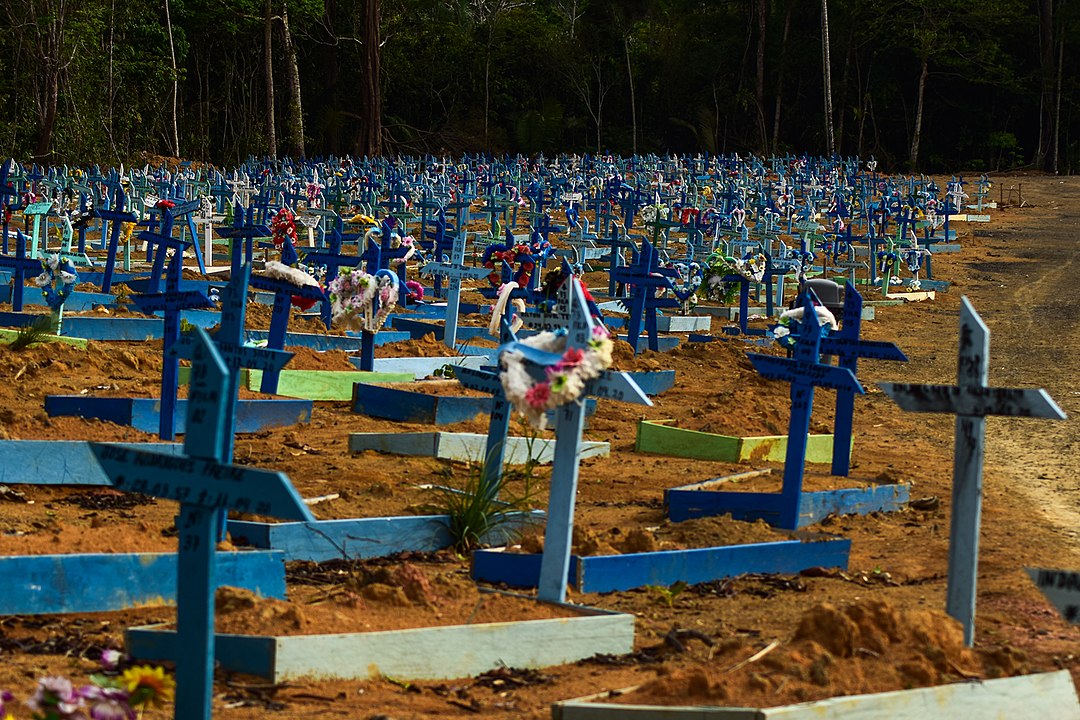
Future Expectations
Some important outlets around the world have expressed concerns with regard to Brazil’s democracy. Jair Bolsonaro’s gross misconceptions about COVID have made the situation even worse over the last year and a half. Brazil is at the epicenter of the pandemic and vaccine rollout is incipient and sluggish. This is so tragic, and again, we don’t see this situation getting any better within the next few months. The largest South American nation is holding general elections in the year 2022. There is some chance that things might turn around, as opposition candidates are registering more voting intentions than Bolsonaro in the polls. As the charges of corruption that kept Lula da Silva from running in 2018 were left behind, he might face Bolsonaro as a top contender. While the country got stuck in the middle of a lethal pandemic, and we have as a leader someone who is not fit for the job, a power shift might prove a key ingredient for Brazil to make a comeback and to find its way to recovery. All in all, a second term for Bolsonaro might bring about gloomy implications for democracy in Brazil, not to mention the overall incompetent handling of national affairs. This country should again be allowed to be a powerhouse, not a pariah state, which is contrary to our 200-year diplomatic tradition of embracing a multilateralist, universalist stance.
Dawisson Belém Lopes
Deputy Dean for International Affairs
The Federal University of Minas Gerais (UFMG), Brazil
Banner Image: Rice plantation near Rio do Sul-SC, Brazil. Wikipedia Commons
